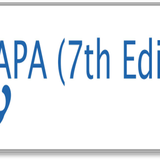Military Background, Political Connection, Audit Quality And Earning Quality
DOI:
https://doi.org/10.24912/ja.v24i1.658Abstract
This research is try to determine the effect of military background and political connections on earning quality with audit quality as a mediator. This research uses a quantitative approach using a sample of mining sector company that listing in Indonesia Stock Exchange in the 2017-2018 periods. The conclusion of this research points out that military background has positive effect on audit quality and political connections negatively affect earning quality. While earning quality not effected by the military background, political connections do not effect audit quality, and earnings quality not effected by audit quality. Likewise, for the hypothesis, mediation of the audit quality has no effect on the relationship of military background and political connections to earnings quality.
References
Adams, M. B. (1994). Agency Theory and the Internal Audit. Managerial Auditing Journal, 9(8), 8-12. doi:doi:10.1108/02686909410071133.
Astami, E. W., Rusmin, R., Hartadi, B., and Evans, J. (2017). The role of audit quality and culture influence on earnings management in companies with excessive free cash flow: Evidence from the Asia-Pacific region. International Journal of Accounting and Information Management, 25(1), 21-42. doi:10.1108/IJAIM-05-2016-0059.
Asthana, S. (2017). Diversification by the audit offices in the US and its impact on audit quality. Review of Quantitative Finance and Accounting, 48(4), 1003-1030. doi:10.1007/s11156-016-0576-y.
Becker, C. L., DeFond, M. L., Jiambalvo, J., and Subramanyam, K. (1998). The effect of audit quality on earnings management. Contemporary accounting research, 15(1), 1-24.
Bell, T. B., Causholli, M., and Knechel, W. R. (2015). Audit Firm Tenure, Non-Audit Services, and Internal Assessments of Audit Quality. Journal of accounting research, 53(3), 461-509. doi:10.1111/1475-679X.12078.
Benmelech, E., and Frydman, C. (2015). Military CEOs. Journal of Financial Economics, 117(1), 43-59. doi:https://doi.org/10.1016/j.jfineco.2014.04.009.
Broberg, P., Tagesson, T., Argento, D., Gyllengahm, N., and Mårtensson, O. (2017). Explaining the influence of time budget pressure on audit quality in Sweden. Journal of Management and Governance, 21(2), 331-350. doi:10.1007/s10997-016-9346-4.
Cahan, S. F., and Sun, J. (2015). The Effect of Audit Experience on Audit Fees and Audit Quality. Journal of Accounting, Auditing and Finance, 30(1), 78-100. doi:10.1177/0148558X14544503.
Campa, D. (2013). “Big 4 fee premium” and audit quality: latest evidence from UK listed companies. Managerial Auditing Journal, 28(8), 680-707.
Casey, R. J., Kaplan, S. E., and Pinello, A. S. (2015). Do auditors constrain benchmark beating behavior to a greater extent in the fourth versus interim quarters? Advances in accounting, 31(1), 1-10.
Chen, X., Dai, Y., Kong, D., and Tan, W. (2017). Effect of international working experience of individual auditors on audit quality: Evidence from China. Journal of Business Finance and Accounting, 44(7-8), 1073-1108. doi:10.1111/jbfa.12257.
Chi, W., Myers, L. A., Omer, T. C., and Xie, H. (2016). The effects of audit partner pre-client and client-specific experience on audit quality and on perceptions of audit quality. Review of Accounting Studies, 22(1), 361-391. doi:10.1007/s11142-016-9376-9.
DeAngelo, L. E. (1981). Auditor size and audit quality. Journal of Accounting and Economics, 3(3), 183-199.
Dechow, P. M., Sloan, R. G., and Sweeney, A. P. (1995). Detecting earnings management. Accounting Review, 193-225.
Fan, J. P. H., Wong, T. J., and Zhang, T. (2007). Politically connected CEOs, corporate governance, and Post-IPO performance of China's newly partially privatized firms. Journal of Financial Economics, 84(2), 330-357. doi:https://doi.org/10.1016/j.jfineco.2006.03.008.
Francis, J. R., and Yu, M. D. (2009). Big 4 office size and audit quality. The Accounting Review, 84(5), 1521-1552.
Gul, F. A. (2006). Auditors' response to political connections and cronyism in Malaysia. Journal of accounting research, 44(5), 931-963.
Habbash, M., and Alghamdi, S. (2017). Audit quality and earnings management in less developed economies: the case of Saudi Arabia. Journal of Management and Governance, 21(2), 351-373. doi:10.1007/s10997-016-9347-3.
Harymawan, I., and Nowland, J. (2016). Political connections and earnings quality: How do connected firms respond to changes in political stability and government effectiveness? International Journal of Accounting & Information Management, 24(4), 339-356.
Herusetya, A. (2014). Pengaruh ukuran auditor dan spesialisasi auditor terhadap kualitas laba. Jurnal Akuntansi dan Keuangan Indonesia, 6(1), 46-70.
Hope, O.-K., Yue, H., and Zhong, Q. (2017). Do politically connected directors affect accounting quality? Evidence from China's anti-corruption campaign (Rule 18).
Houqe, M. N., Ahmed, K., and van Zijl, T. (2017). Audit Quality, Earnings Management, and Cost of Equity Capital: Evidence from India. International Journal of Auditing, 21(2), 177-189. doi:10.1111/ijau.12087.
Hu, D. (2015). Audit quality and measurement: towards a comprehensive understanding. Academy of Accounting and Financial Studies Journal, 19(1), 209.
Kang, M., Lee, H.-Y., Son, M., and Stein, M. (2016). The association between human resource investment by audit firms and their audit quality. Asia-Pacific Journal of Accounting & Economics, 24(3-4), 249-271. doi:10.1080/16081625.2016.1214605.
Khan, A., Mihret, D. G., and Muttakin, M. B. (2016). Corporate political connections, agency costs and audit quality. International Journal of Accounting & Information Management.
Law, K. K., and Mills, L. F. (2017). Military experience and corporate tax avoidance. Review of Accounting Studies, 22(1), 141-184. doi:10.1007/s11142-016-9373-z.
Persakis, A., and Iatridis, G. E. (2016). Audit quality, investor protection and earnings management during the financial crisis of 2008: An international perspective. Journal of International Financial Markets, Institutions and Money, 41(Supplement C), 73-101. doi:https://doi.org/10.1016/j.intfin.2015.12.006.
Qi, B., Yang, R., and Tian, G. (2017). Do social ties between individual auditors and client CEOs/CFOs matter to audit quality?*. Asia-Pacific Journal of Accounting and Economics, 24(3-4), 440-463. doi:10.1080/16081625.2015.1135067.
Sanjaya, I. P. S. (2008). Auditor Eksternal, Komite Audit, dan Manajemen Laba Sanjaya. The Indonesian Journal of Accounting Research, 11(1).
Wahab, E. A. A., Zain, M. M., and James, K. (2011). Political connections, corporate governance and audit fees in Malaysia. Managerial Auditing Journal.
Downloads
Published
How to Cite
Issue
Section
License
Copyright (c) 2020 Jurnal Akuntansi

This work is licensed under a Creative Commons Attribution-NonCommercial-ShareAlike 4.0 International License.
This journal provides immediate open access to its content on the principle that making research freely available to the public supports a greater global exchange of knowledge.

This work is licensed under a Creative Commons Attribution-NonCommercial-ShareAlike 4.0 International License



















